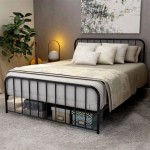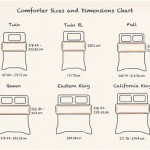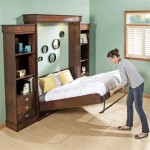How to Fit a Bed Rail - A Comprehensive Guide
Bed rails play a critical role in ensuring safety and comfort for people who have difficulty getting in and out of bed, or who are at risk of falling. They provide added support and stability, helping individuals to maintain their independence and enjoy a better quality of life. Installing bed rails might seem like a daunting task, but with the right instructions and a little patience, it can be completed in a few simple steps.
1. Gather Your Materials
Before getting started, ensure you have all the necessary materials. This typically includes the bed rails themselves, the appropriate mounting hardware (usually included with the rails), an Allen key or wrench, and optionally, a drill for pre-drilling holes.
2. Choose the Right Bed Rails
There are various types of bed rails available, each designed to meet specific needs. Full bed rails extend the entire length of the bed, providing maximum support. Half bed rails are shorter and cover only one side of the bed. Split-rail systems consist of two separate rails that are designed to fold away when not in use. Consider the individual's needs and the bed size to determine the most suitable bed rails.
3. Prepare the Bed Frame
Inspect the bed frame to identify the appropriate mounting points for the bed rails. Typically, there are predrilled holes along the side rails of the bed. If there are no existing holes, use a drill to create them, ensuring they are spaced evenly. It is crucial to ensure that the holes align with the mounting brackets of the bed rails.
4. Attach the Mounting Brackets
Align the mounting brackets with the predrilled holes on the bed frame and secure them using the provided hardware. Tighten the bolts firmly using an Allen key or wrench. Ensure the brackets are securely fastened to the bed frame to provide a solid base for the bed rails.
5. Install the Bed Rails
Place the bed rails onto the mounting brackets and secure them by tightening the bolts or wing nuts. Ensure the bed rails are level and firmly attached to the brackets. Depending on the type of bed rails, there may be additional steps involved, such as attaching side rails or adjusting the height.
6. Test the Stability
Once the bed rails are installed, shake them gently to check for stability. They should not wobble or move excessively. Ensure the bed rails are securely fastened and make any necessary adjustments to improve their stability and functionality.
7. Additional Considerations
When using bed rails, there are a few additional safety considerations to keep in mind. Ensure the rails are always raised when the bed is occupied, providing support and preventing falls. If the bed rails have any adjustable features, such as height or angle, ensure they are set appropriately to meet the individual's needs. Regularly inspect the bed rails to check for loose bolts or any signs of damage, and make repairs or replacements as necessary.
Conclusion
By following these steps, you can successfully fit bed rails to enhance safety and comfort. Remember to choose the right bed rails, prepare the bed frame carefully, and ensure secure installation and stability. With proper maintenance and attention to safety, bed rails can provide long-lasting support and peace of mind, allowing individuals to navigate their daily activities with greater ease and confidence.

Adjusting The Strap On Mesh Bed Rail Narrow Safetots

Bed Rail Mattress Safety Guard Signature Life

Bed Rail Guide Nrs Healthcare Pro

Standers Bed Rails Performance Health

Bed Rail Al In Orlando Fl By Traveling Baby

Bed Rail Folding Easy Fit

Insma Bed Rails For Toddlers Extra Tall Kids Guardrail Vertical Lifting Collapsible Baby Safety Rail Guards Fit Twin Full Three Quarters King Size Com

Folding Easy Fit Bed Rail Ability Super

Insma Bed Rails For Toddlers Extra Tall Kids Guardrail Vertical Lifting Collapsible Baby Safety Rail Guards Fit Twin Full Three Quarters King Size Com

Ez Adjust Bed Rail Mobility Access Options Nw
Related Posts







